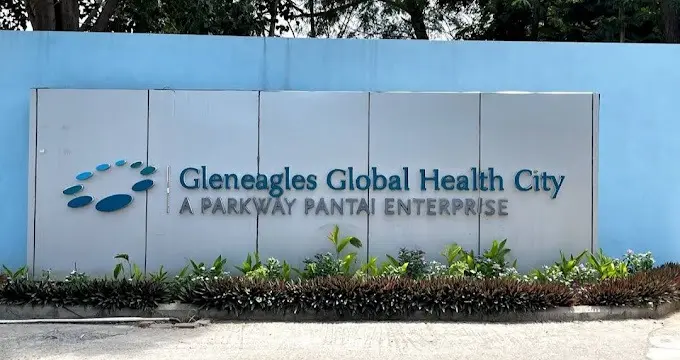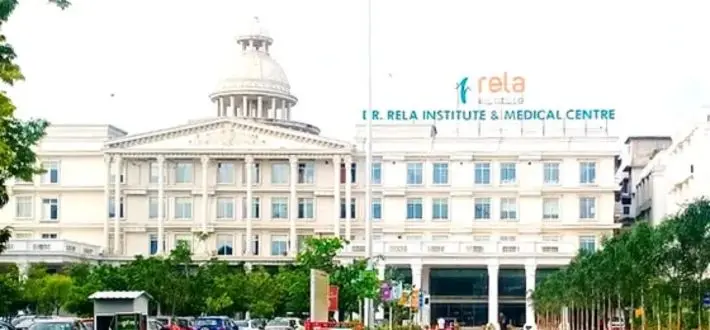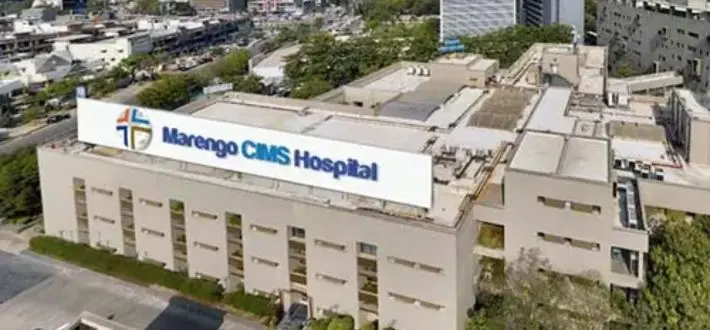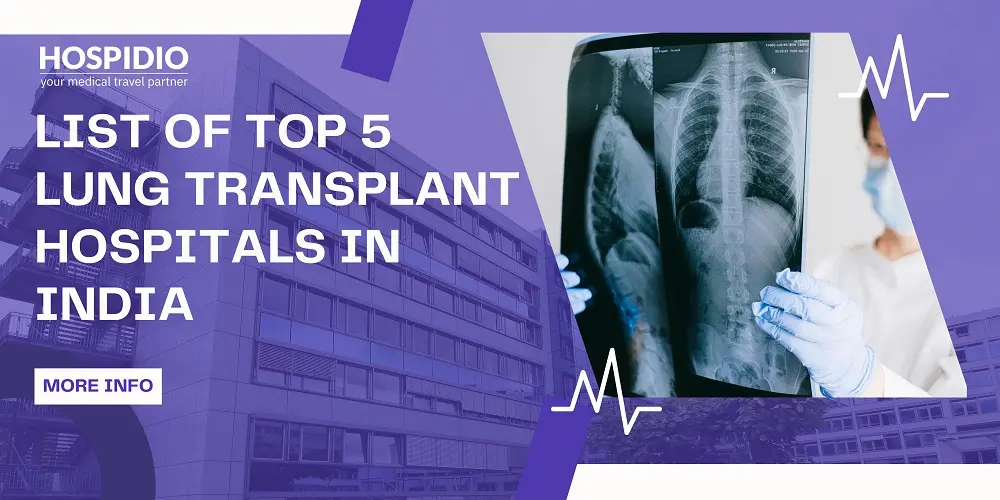Lung transplantation is a life-saving surgery for individuals suffering from end-stage lung diseases. When medications and other treatments fail to provide relief or halt disease progression, a lung transplant may be the only option to restore normal breathing and quality of life. Lung transplant hospitals in India have gained global recognition for offering advanced transplant care, expert medical teams, and affordable lung transplant cost in India, making the country a preferred destination for foreign nationals seeking this complex procedure.
India has emerged as a global healthcare destination, offering high-quality lung transplant programs at a fraction of the in Western countries. For foreign nationals, India offers affordable access to some of the world’s top lung transplant surgeons, internationally accredited hospitals, and a robust support ecosystem.
This blog is a detailed guide for international patients considering lung transplants in India. We’ll explore everything from disease indications and eligibility to top hospitals, leading surgeons, the transplant process, and how HOSPIDIO supports you throughout the journey.
Get a free cost estimate
Why Might Someone Need a Lung Transplant?
Lung transplants are typically recommended when no other treatment options are effective, a patient’s lung condition significantly impairs daily functioning, and breathing becomes difficult even at rest, a lung transplant becomes the only life-saving solution. Common indications include:
Chronic Obstructive Pulmonary Disease (COPD)
Advanced COPD, including emphysema, leads to the destruction of lung tissue and air trapping, causing breathlessness and reduced physical capacity. For patients with very low lung function (measured by FEV1), frequent hospitalizations, and dependence on oxygen therapy, a lung transplant can dramatically extend life and improve functional ability. COPD is one of the most common indications for a single-lung transplant. It is a progressive disease that causes airflow blockage and breathing difficulty. In severe cases where medication fails, lung transplantation is considered.
Idiopathic Pulmonary Fibrosis (IPF)
This condition causes scarring of the lung tissues, leading to progressive respiratory failure. Lung transplantation can significantly prolong life expectancy. IPF is a progressive, irreversible disease marked by the scarring (fibrosis) of lung tissue without a known cause. Over time, this fibrosis makes it difficult for oxygen to pass into the bloodstream. Patients with IPF often suffer from severe breathlessness, chronic cough, and oxygen dependency. When medical therapies fail to halt progression, lung transplant offers the only potential cure and significantly improves survival rates.
Cystic Fibrosis
A genetic disorder that leads to persistent lung infections. A double lung transplant may be recommended in advanced stages. CF is a genetic disorder that causes thick, sticky mucus to build up in the lungs, leading to repeated infections and progressive lung damage. Lung transplantation is often considered when a CF patient has recurrent lung infections, severe respiratory failure, or frequent hospitalizations. Post-transplant, patients can expect a vastly improved quality of life, though ongoing care and monitoring remain essential.
Pulmonary Arterial Hypertension
PAH is a condition where the arteries in the lungs become narrowed, raising pressure and forcing the right side of the heart to work harder. Over time, this can lead to right-sided heart failure. When PAH becomes refractory to medications and patients experience worsening symptoms like syncope and fatigue, lung or heart-lung transplantation is indicated.
Bronchiectasis (Non-Cystic Fibrosis Type)
Bronchiectasis is a chronic disease that results in permanent enlargement of parts of the airways, leading to frequent infections, coughing, and mucus production. In severe cases where lung function continues to deteriorate despite antibiotics and airway clearance therapies, lung transplant may be the last resort to prevent respiratory failure.
Tuberculosis-Related Complications
In patients with a history of pulmonary tuberculosis, complications such as destroyed lung lobes, hemoptysis (massive bleeding), chronic infections, or fibrosis can render the lung non-functional. When the damage is extensive and leads to chronic respiratory insufficiency or recurrent infections, lung transplantation may be considered—once the infection is fully treated and inactive.
Interstitial Lung Diseases (ILDs)
ILDs include a broad spectrum of lung disorders like sarcoidosis, hypersensitivity pneumonitis, autoimmune-related fibrosis (e.g., from rheumatoid arthritis or scleroderma). These conditions cause inflammation and scarring of lung tissue, leading to progressive breathlessness. When medical therapies such as corticosteroids or immunosuppressants fail, transplantation becomes a critical intervention to restore lung function and prolong life.
Severe Lung Infections and Abscesses
In rare cases, patients may develop life-threatening infections leading to lung destruction or recurrent lung abscesses that cannot be managed by surgery or long-term antibiotics. If both lungs are significantly affected and breathing becomes impaired, a transplant may be the only viable option.
Occupational Lung Diseases
Conditions such as silicosis, asbestosis, or coal workers’ pneumoconiosis caused by long-term inhalation of harmful dust and particles can lead to permanent lung damage. In end-stage scenarios where supportive therapies no longer help, lung transplantation becomes the final option.
India has emerged as a leading destination for successful lung transplant surgeries. With state-of-the-art hospitals, internationally trained surgeons, and advanced post-operative care, patients from around the world come here for high-quality, affordable treatment.
Eligibility Criteria for Lung Transplant Candidates
Lung transplantation is a major procedure requiring stringent evaluation. Candidates must meet specific medical, psychological, and lifestyle criteria.
Diagnosis of End-Stage Lung Disease
Candidates must have a progressive and irreversible lung condition that significantly impairs breathing and quality of life, and for which no other medical or surgical options are available. Common conditions include:
- Idiopathic pulmonary fibrosis (IPF)
- Chronic obstructive pulmonary disease (COPD)
- Cystic fibrosis (CF)
- Pulmonary arterial hypertension (PAH)
- Interstitial lung disease (ILD)
- Bronchiectasis
- COVID-19-induced irreversible lung damage
Severe Impairment in Lung Function
Objective tests such as pulmonary function tests (PFTs), arterial blood gas analysis, and imaging should indicate severely impaired lung function. This may include:
- Forced Expiratory Volume (FEV1) < 25–30%
- Oxygen saturation consistently below 90%
- Dependence on oxygen therapy
- Frequent hospitalizations or ICU admissions for respiratory failure
Failure of Conventional Treatments
Candidates must have shown inadequate response to all available medical treatments, including:
- Bronchodilators, corticosteroids, and other medications
- Pulmonary rehabilitation
- Long-term oxygen therapy
- Non-invasive ventilation
- Minimally invasive surgical interventions (if applicable)
Acceptable Overall Health
A potential recipient must be in good general health, excluding the lungs. This means:
- No active infections such as sepsis, TB, or HIV/AIDS
- Normal or manageable kidney, liver, and heart function
- Absence of uncontrolled diabetes, cancer, or severe obesity
- No untreated psychiatric illness or substance abuse
Age Considerations
There is no strict age limit, but most centers consider lung transplant for patients under 65–70 years of age. However, physiological age, not chronological age, is more important. Exceptionally fit older patients may still qualify.
Commitment to Post-Transplant Care
Lung transplant requires lifelong commitment to care, including:
- Adhering to immunosuppressive medication regimens to prevent rejection
- Frequent follow-up visits for lung function monitoring
- Maintaining a healthy lifestyle to support long-term survival
- Ability to recognize and respond quickly to signs of infection or rejection
Non-Smoking and No Substance Abuse
Candidates must be non-smokers for at least 6 months prior to evaluation and must refrain from all forms of:
- Tobacco
- Alcohol (if abused)
- Recreational drugs
Strong Social Support System
Post-transplant recovery is complex and demanding. Candidates must have a reliable caregiver or support system, often a family member, to:
- Assist with transportation to medical appointments
- Ensure medication adherence
- Provide emotional support during recovery
Psychological Readiness
Psychological stability is crucial for transplant success. Candidates undergo a mental health evaluation to assess:
- Emotional resilience
- Understanding of risks and benefits
- Coping skills for long-term challenges
- Readiness to make lifestyle adjustments
Types of Doctors Involved in a Lung Transplant Program
A successful lung transplant requires a multidisciplinary approach. Here's a look at the team involved:
- Pulmonologist: The primary lung disease specialist who evaluates and refers patients for transplant.
- Cardiothoracic Surgeon: Performs the transplant and ensures surgical precision.
- Transplant Coordinator: Manages scheduling, medical records, and patient education.
- Anesthesiologist: Oversees anesthesia during surgery.
- Critical Care Specialists: Monitor post-op recovery in the ICU.
- Rehabilitation Therapists and Dietitians: Help in regaining strength and maintaining post-surgical health.
What is a Lung Transplant and How Does It Work?
A lung transplant involves replacing a diseased lung with a healthy one from a donor. Based on the patient’s condition, doctors may recommend:
- Single Lung Transplant – one lung is replaced
- Double Lung Transplant – both lungs are replaced
- Heart-Lung Transplant – in rare cases, both heart and lungs are replaced
Also Check- Heart Transplant cost in India
Procedure Overview:
- The patient is matched with a suitable donor
- The transplant is performed under general anesthesia
- Post-surgery, the patient is closely monitored in the ICU
- Lifelong medications (immunosuppressants) are needed to prevent organ rejection
Top 5 Lung Transplant Hospitals in India
Sahyadri Hospital, Deccan, Pune
City: Pune, Maharastra
Address: 30-C, Erandwane, Karve Road, Deccan Gymkhana, Pune, Maharashtra – 411004
Year of Establishment: 2004
Number of Beds: 200+

- Specialties: Advanced pulmonology, cardiothoracic surgery, and transplant ICU.
- Success Rate: Over 80% for lung transplant cases.
- International Patient Services: Visa support, language interpreters, accommodation assistance.
- Infrastructure: NABH-accredited, with a dedicated transplant unit and rehab center.
- Sahyadri Hospital is a reputed multispecialty institution in Western India with a rapidly evolving organ transplant program.
- The hospital is particularly noted for its achievements in heart and lung transplants, having successfully conducted complex procedures including heart-lung transplants.
- Equipped with state-of-the-art modular operation theaters and a dedicated transplant ICU
- Offers both single and double lung transplant options
- Features a specialized post-transplant rehabilitation unit for pulmonary recovery
- Known for low complication rates and high post-operative survival
- Led by Dr. Manoj Durairaj, a pioneer in thoracic transplantation in India
MGM Healthcare, Chennai
City: Chennai, Tamilnadu
Address: 72, Nelson Manickam Road, Aminjikarai, Chennai, Tamil Nadu – 600029
Year of Establishment: 2019
Number of Beds: 400+

- Though relatively new, MGM Healthcare has quickly gained a reputation for being one of the most advanced centers for heart and lung transplants in India.
- The hospital’s transplant unit has performed numerous complex lung transplant procedures with exceptional outcomes.
- Offers robotic and minimally invasive thoracic surgeries
- Dedicated transplant ICU with ECMO and ventilator support
- High patient success and recovery rates
- Internationally trained transplant team led by Dr. Sandeep Attawar and Dr. KL Balakrishnan
- Known for quick turnaround in donor-recipient matching and ethical transplant practices
Gleneagles Global Hospital, Chennai
City: Chennai, Tamilnadu
Address: 439, Cheran Nagar, Perumbakkam, Chennai, Tamil Nadu – 600100
Year of Establishment: 1999
Number of Beds: 200+

- Gleneagles Global Hospital is a pioneer in lung transplantation in India, having performed some of the earliest lung transplants in the country.
- It is especially recognized for handling high-risk cases and complex thoracic surgeries.
- Advanced pulmonary diagnostics and imaging
- Dedicated thoracic ICU and transplant care unit
- Multidisciplinary team for pre- and post-operative care
- Offers VATS, RATS, and ECMO support
- Comprehensive infection control protocols for transplant patients
- Home to expert surgeons like Dr. Srinath Vijayasekharan
Dr. Rela Institute and Medical Center, Chennai
City: Chennai, Tamilnadu
Address: No. 7, CLC Works Road, Chromepet, Chennai, Tamil Nadu – 600044
Year of Establishment: 2018
Number of Beds: 450

- Founded by world-renowned transplant surgeon Dr. Mohamed Rela, the Rela institute has become a trusted destination for complex organ transplants, including lungs.
- The hospital has successfully treated patients from over 50 countries.
- High-end transplant surgical suites with robotic technology
- Specializes in high-risk lung and heart-lung transplants
- Dedicated infection-free transplant wards
- Offers personalized rehabilitation programs post-transplant
- Skilled in managing co-morbidities and complex lung failures
- Dr. Madhan Kumar K is one of the lead lung transplant surgeons here
Marengo CIMS Hospital, Ahmedabad
City: Ahmedabad, Gujrat
Address: Nr. Shukan Mall, Off Science City Road, Sola, Ahmedabad, Gujarat – 380060
Year of Establishment: 2010
Number of Beds: 350+

- Marengo CIMS Hospital is one of Gujarat's leading centers for cardiac and thoracic care and has recently gained prominence for its lung transplant services.
- The hospital stands out for its quality of care, surgical outcomes, and affordability.
- Offers VATS, RATS, and ECMO-supported lung transplants
- Skilled team of transplant surgeons and pulmonologists
- Strong focus on pre-operative workup and post-op recovery
- Fully-equipped ICU with transplant-specific protocols
- Pulmonary rehab programs for sustained lung function post-surgery
Also Check: Lung Cancer Diagnosis & Treatment
Top 5 Lung Transplant Surgeons in India
Dr. Manoj Durairaj (Pune – Sahyadri Hospital)
Specialization: Cardiothoracic Surgery & Lung Transplantation
Years of Experience: 20+ years
Current Hospital Affiliation: Sahyadri Hospital, Pune
Notable Achievements:
- Known as the first heart transplant surgeon in Pune.
- Successfully conducted several high-risk lung and heart-lung transplants.
- Trained in advanced cardiothoracic surgery in Germany and Australia.
- Recognized for making transplant care more accessible in Western India.
- Spearheaded minimally invasive thoracic surgeries in Maharashtra.
Dr. Sandeep Attawar (Chennai – MGM Healthcare)
Specialization: Cardiothoracic & Lung Transplant Surgery
Years of Experience: 25+ years
Current Hospital Affiliation: MGM Healthcare, Chennai
Notable Achievements:
- One of the most experienced lung transplant surgeons in India with 500+ heart and lung transplants.
- Pioneered India’s first combined heart and double lung transplant.
- Leads the Institute of Heart and Lung Transplant & Mechanical Circulatory Support.
- Instrumental in developing India’s largest lung transplant program.
Dr. K. L. Balakrishnan (Chennai – MGM Healthcare)
Specialization: Cardiac Surgery & Thoracic Organ Transplantation
Years of Experience: 30+ years
Current Hospital Affiliation: MGM Healthcare, Chennai
NotableAchievements:
- Regarded as one of the pioneers of heart and lung transplantation in India.
- Performed India’s first successful pediatric heart transplant.
- Established world-class infrastructure and protocols for lung transplants
- Recognized internationally for innovations in mechanical circulatory support.
Dr. Srinath Vijayasekharan (Chennai – Gleneagles Global Hospital)
Specialization: Thoracic Surgery, Lung Transplantation & ECMO Support
Years of Experience: 18+ years
Current Hospital Affiliation: Gleneagles Global Hospital, Chennai
Notable Achievements:
- Core member of India’s pioneering lung transplant team.
- Expert in managing advanced pulmonary failure and ECMO cases.
- Involved in numerous successful double-lung and single-lung transplants.
- Specializes in post-transplant care, infection management, and thoracic trauma.
Dr. Madhan Kumar K (Chennai – Apollo Hospitals)
Specialization: Lung Transplantation & Minimally Invasive Thoracic Surgery
Years of Experience: 15+ years
Current Hospital Affiliation: Apollo Hospitals, Chennai
Notable Achievements:
- Known for advanced VATS and RATS procedures for lung transplants.
- Frequently treats international patients from the Middle East and Africa.
- Has a reputation for excellent post-operative outcomes and transplant rehabilitation.
- Actively involved in research and teaching thoracic surgical techniques.
Lung Transplant Process in India for International Patients
Foreign patients looking to undergo a lung transplant in India follow a structured journey. Here’s a step-by-step overview:
Step 1: Sharing Medical Records & Online Consultation
The process usually begins with an initial consultation, either virtually or in person, with a transplant pulmonologist surgeon. During this stage the patient submits-
- Medical history and reports
- CT scans, chest X-rays and PFTs (pulmonary function tests)
- Current medications and oxygen therapy status
The transplant team evaluates the severity of the disease, overall health condition, and determines if the patient qualifies for a transplant. If found eligible, a detailed plan for further testing, pre-transplant preparation, and visa application is provided.
Step 2: Medical Visa Support and Documentation
Once the patient is deemed suitable for lung transplantation-
- The hospital issues a treatment estimate and medical invitation letter.
- The patient applies for a Medical Visa (M-) at the Indian Embassy in their country, valid for up to a year with multiple entries.
- Documents such as passport, recent medical reports, and photographs are required for visa approval.
- Most hospitals provide medical concierge support to assist with visa applications, travel, and lodging arrangements.
Step 3: Arrival, Accommodation, and In-person Evaluation
After arrival, the patient undergoes a comprehensive in hospital evaluation to confirm transplant readiness and identify any potential risks. This evaluation includes-
- Blood tests, imaging, ECG, and 2D Echo
- Evaluation of heart, liver, and kidney function
- Infectious disease screening (HIV, Hepatitis B/C, TB)
- Psychological and nutritional assessments
Step 4: Registration with NOTTO
Once cleared, the patient is formally registered with the state or regional organ registry such as-
- TRANSTAN
- Jeevendan
- ROTTO/SOTTO
Donor lungs are allocated based on urgency, blood group compatibility and medical criteria. Foreign patients are listed under a separate category and matched to donor lungs as per legal guidelines and availability.
Step 5: Waiting Period and Regular Hospital Visits
The waiting time for a suitable donor lung can vary from a few weeks to several months. During this period:
- The patient stays near the hospital or in a monitored guesthouse.
- Regular checkups are done to assess lung function and manage symptoms.
- Patients are advised to stay infection-free, maintain nutritional health, and avoid crowded places.
- Some hospitals offer pulmonary rehabilitation sessions and wellness support.
Patients must be prepared to reach the hospital immediately when a suitable donor lung becomes available.
Step 6: Organ Allocation and Surgery
Once a matched donor lung is allocated:
- The patient is admitted immediately and prepared for surgery.
- The lung transplant, either single or double, is performed under general anesthesia.
- The surgery takes 6 to 10 hours, depending on the complexity.
- Post-surgery, the patient is shifted to a dedicated transplant ICU for close monitoring.
Step 7: Post-operative Care and Rehabilitation
Post-operative care is crucial for the success of the lung transplant. It involves:
- 2–3 weeks in ICU and recovery ward, depending on complications
- Administration of immunosuppressive medications to prevent rejection
- Continuous monitoring for infections, lung function, and rejection symptoms
- Pulmonary physiotherapy and rehabilitation
- Nutritional and psychological support
International patients are advised to stay in India for 2–3 months post-surgery to ensure stable recovery before returning home.
Step 8: Long-term Follow-up & Extended Stay in India
Before returning to their home country, patients receive:
- A detailed medical discharge summary
- A post-transplant care plan, including medication schedules
- Recommendations for follow-up tests and teleconsultations
Many hospitals offer online follow-up services, and some work with doctors in the patient’s home country to ensure continuity of care.
City-Specific Highlights for Lung Transplant Patients
Chennai
Chennai stands at the forefront of thoracic organ transplantation in India. With top-tier hospitals like MGM Healthcare, Gleneagles Global Hospital, and Dr. Rela Institute, the city handles a significant volume of successful lung transplants annually.
City Highlights:
- Home to India’s largest and most experienced lung transplant teams.
- Availability of advanced life-support systems like ECMO across leading hospitals.
- Well-connected international airport with visa assistance for foreign patients.
- Multiple affordable accommodation options and guest houses near hospitals.
- Multilingual staff and translators to assist international patients.
- Coastal climate and moderate weather support recovery in respiratory cases.
Ideal For: Patients seeking highly specialized lung transplant programs, especially those with complex conditions or requiring combined heart-lung transplantation.
Pune
Pune is rapidly gaining recognition for its advanced transplant facilities, especially with Sahyadri Hospital leading the way in lung and heart-lung transplants. Known for its personalized medical attention and quieter environment, Pune is a favored destination for those who prefer less-crowded cities with reliable healthcare.
City Highlights:
- Houses Sahyadri Hospital, one of the leading centers for thoracic organ transplantation in Western India.
- Peaceful and clean environment conducive to recovery post-transplant.
- Affordable living and medical costs compared to metro cities.
- Access to expert surgeons like Dr. Manoj Durairaj, a leader in thoracic transplants.
- Efficient local transport and proximity to Mumbai for international connectivity.
- Multilingual medical teams and dedicated patient coordinators for global patients.
Ideal For: Patients looking for high-quality care in a serene setting, especially those from Western India or nearby countries seeking budget-friendly transplant options.
Mumbai
Mumbai, India’s financial capital, offers sophisticated infrastructure and top-tier hospitals for advanced lung and thoracic care.
Highlights:
- Access to elite hospitals with advanced ICU and ECMO support.
- Well-connected international airport for global patients.
- Availability of high-end rehabilitation and medical lodging facilities.
- 24/7 translation and concierge services in major hospitals.
- Ideal for medical travelers from Africa, the Middle East, and Southeast Asia.
Best For: Patients looking for world-class care with global connectivity and premium services.
Hyderabad
Hyderabad is fast becoming a leader in lung transplants, with specialized centers like Yashoda Hospitals and KIMS Hospitals developing robust thoracic programs.
Highlights:
- Emerging as a transplant hub with expert teams and modern equipment.
- Competitive costs with excellent success rates.
- Favorable climate and well-developed city infrastructure.
- Convenient domestic and international flight options.
- Growing popularity among overseas patients due to innovative procedures and bilingual support teams.
Best For: Patients seeking expert care in a modern city with growing transplant capabilities and tech-backed services.
Also Read: Top 10 Heart Hospitals in India
India has earned its place as a global leader in lung transplantation, offering a blend of advanced surgical capabilities, experienced specialists, and cost-effective packages. For international patients, the journey to a healthier life begins with access to the right information, reliable medical support, and personalized care.
At HOSPIDIO, we ensure that your lung transplant journey in India is seamless—from the first virtual consultation to post-operative rehabilitation. Our experts help with medical visas, hospital coordination, and everything in between. Let us guide you toward world-class treatment and a new lease on life.
Thinking of a lung transplant in India? Contact HOSPIDIO today and let us help you breathe easy again.
FAQs
Typically, patients should plan to stay in India for around 8 to 12 weeks, including pre-surgery evaluation, surgery, and post-operative recovery and monitoring.
Donor lungs are allocated through the government-regulated organ-sharing network based on medical urgency, blood group compatibility, and time on the waiting list.
The cost ranges from $55,000 to $85,000, including pre-surgery tests, type of surgery, ICU care, hospital stay, and medications.
Yes, a caregiver is essential to assist with daily activities, medication management, hospital visits, and emotional support throughout the treatment and recovery period.
Yes, you can return after recovery and medical clearance, usually within 2 to 3 months, but you must continue regular follow-ups and take lifelong medication.
You need a Medical Visa (M-Visa), which is typically valid for 60 days and can be extended based on medical requirements with hospital documentation.
At HOSPIDIO, we help patients across the globe access trusted lung transplant programs in India. From finding the right hospital to visa assistance, travel support, and 24/7 case management, we ensure a stress-free journey to recovery. Contact us now to know your options
Sasmita
Author
Sasmita is a Marketing Specialist at Hospidio, a leading medical travel company. With expertise in Google Ads, Facebook Ads, and SEO, she plays a pivotal role in driving international leads for healthcare services in India. In addition to her digital marketing prowess, Sasmita is passionate about creating informative and research-based content. She writes extensively about treatment options available in India, the leading hospitals, and the surgeons that provide specialized care. Her blog posts also explore into new medical technologies and breakthroughs in the healthcare field, with the aim of educating international patients on the benefits of traveling to India for medical treatment.
Guneet Bindra
Reviewer
Guneet Bhatia is the Founder of HOSPIDIO and an accomplished content reviewer with extensive experience in medical content development, instructional design, and blogging. Passionate about creating impactful content, she excels in ensuring accuracy and clarity in every piece. Guneet enjoys engaging in meaningful conversations with people from diverse ethnic and cultural backgrounds, enriching her perspective. When she's not working, she cherishes quality time with her family, enjoys good music, and loves brainstorming innovative ideas with her team.

